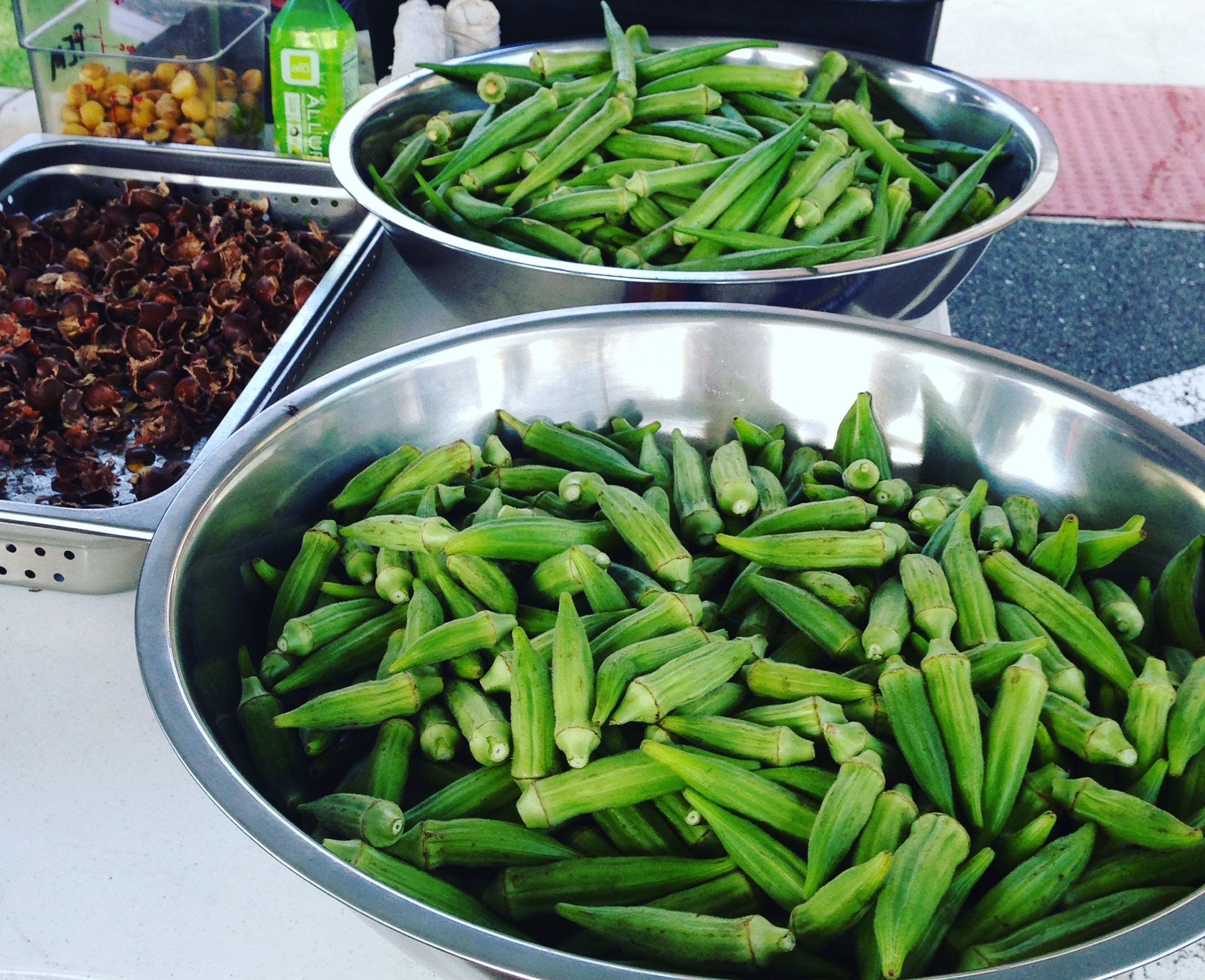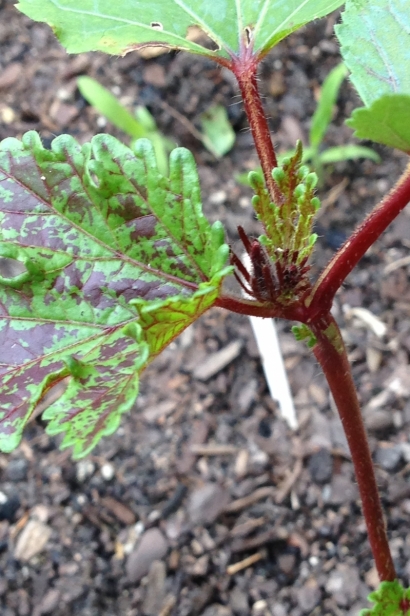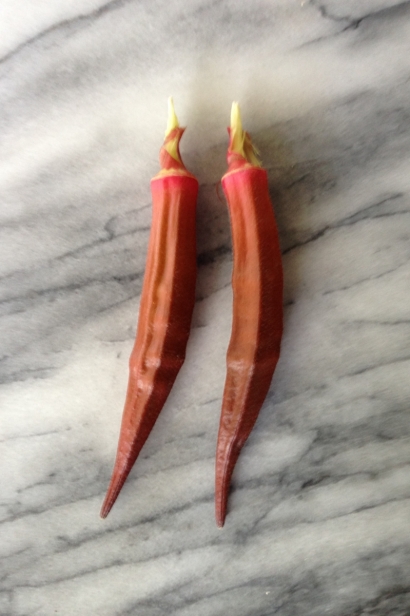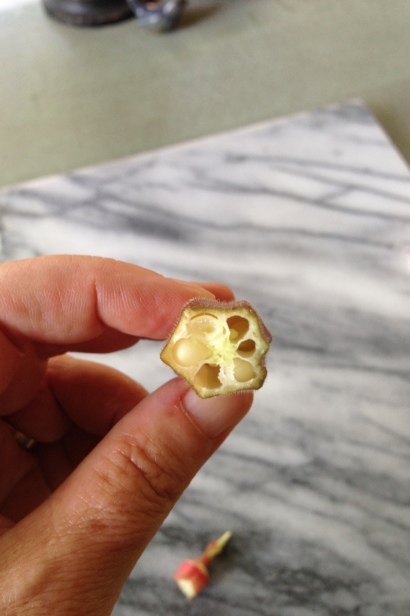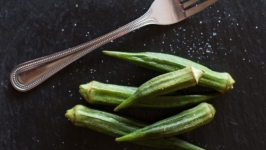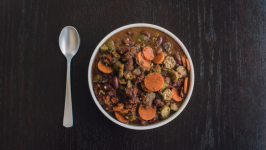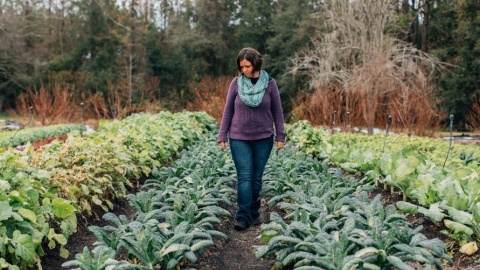Okra, A Versatile Vegetable
While hot Northeast Florida summers may limit options for vegetable gardens, here’s an easy to grow plant that thrives in the heat – okra. This pod vegetable has been known by many names throughout its existence. In various parts of the English-speaking world it is known as ochro and ladies fingers. Varieties include green, red and even white pods.
There is some dispute about the origins of okra. Though there is some evidence of it being grown in South Asia, many trace okra back to Ethiopia and West Africa, where the hot sunny climate suits the plant. An account by explorers from 1216 mentions the discovery of it growing wild along the Nile River, and described the Egyptians eating it with meal (perhaps an early version of fried okra). Due to Africa’s isolation it was not widely circulated until the 15th century. Okra was probably introduced to North America in early 18th century, as part of the slave trade industry, and eventually became a staple crop in the South.
Okra is coveted for its easy-going nature: it can be germinated from seed throughout a long growing season, endures a Northeast Florida summer without complaint and is relatively unbothered by pests that could ruin a daintier vegetable. And okra is a visual enhancement to your edible landscape: the flowers are a beautiful addition to the garden, though the blooms only stay open for one day.
The versatile pods can be eaten raw, cooked in stews, fried, roasted and pickled, and they are high in fiber, vitamin C and antioxidants. And did you know you can eat the leaves? Try them either raw in salads or sautéed as you would spinach and beet leaves.
Once you become a fan of okra, it is an easy plant to have year after year, though it may require you to resist eating all your harvest. Save a pod or two, intact with seeds, and let them dry out. Store them in a cool, dry container. At planting time, open up the pods and use the seeds to start your next crop.


